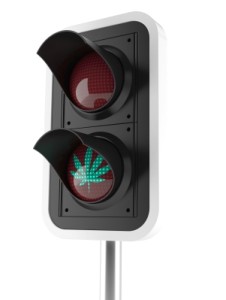Is Legalizing Reefer Madness?
The Pew Research Center found that for the first time since 1969, more Americans favor legalizing the use of marijuana (52%) than those who oppose it (45%). The change started after 1991, when 78% of Americans opposed legalization and merely 17% supported it. The greatest support for legalization was found within youngest age group, individuals born since 1980. Sixty-Five percent of these Millennials favor legalizing marijuana.
The past three years have seen a rapid shift in support of legalization. In 2010 only 41% were in support of legalization. “Since then, support for legalization has increased among all demographic and political groups.” Boomers, born between 1947 and 1964, have seen their support for legalizing marijuana increase from 24% in 1994 to 50% in 2013.
Along with the increased support for marijuana legalization, there has been a corresponding decline in negative attitudes about marijuana. Currently, 32% believe that smoking marijuana is morally wrong, an 18 point decline since 2006 (50%). Over that same period, the percentage of people who said that smoking marijuana was not a moral issue rose 15 points from 35% in 2006 to 50% in 2013.
Over the past three decades, attitudes on whether or not marijuana was a gateway drug have shifted as well. A 1977 Gallup survey found that 60% of people believed that marijuana was a gateway drug. In 2013, only 38% believed so. Most of this shift is the result of generational change. Gen X and Millennials were far less likely to say that marijuana use leads to the use of hard drugs (36% of Gen X and 31% of Millennials).
The efforts of organizations like NORML and the Marijuana Policy Project seems to be paying off. They have been working to “legalize the responsible use of marijuana,” so that marijuana is “legally regulated similarly to alcohol.”
But I wonder if the momentum towards legalization is moving in right direction. NORML and the Marijuana Policy Project cited various studies on the safety profile of cannabis, the therapeutic potential of cannabis and how long-term cannabis use does not cause permanent cognitive impairment. But there seems to be an opposing consensus on the potential harmful effects of marijuana use. Just a few of these concerns are noted below.
- The potency of marijuana has doubled since 1998; tripled in the past 20 years.
- In 2010, marijuana was involved in more than 461,000 ER visits nationwide.
- In 2011 around 872,000 individuals received treatment for marijuana use.
- In 2012 4.3 million individuals could be diagnosed as dependent upon or abusing marijuana.
There is also clear evidence of an association between marijuana use and psychosis. NORML gave a summary of the 1995 Lancet study that said smoking cannabis, even long-term use, was not harmful. Yet they ignored the Lancet’s retraction of that support published in the July 2007 edition of the Lancet:
In 1995, we began a Lancet editorial with the since much-quoted words: “The smoking of cannabis, even long term, is not harmful to health.” Research published since 1995, including Moore’s systematic review in this issue, leads us now to conclude that cannabis use could increase the risk of psychotic illness. Further research is needed on the effects of cannabis on affective disorders. The Advisory Council on the Misuse of Drugs will have plenty to consider. But whatever their eventual recommendation, governments would do well to invest in sustained and effective education campaigns on the risks to health of taking cannabis.
A web site, Cannabis & Psychosis, was recently launched to “increase awareness and understanding of the relationship between cannabis use and psychosis from the perspective of youth.”
Public support for the legalization of marijuana is growing. The potency of marijuana is increasing. And the evidence for the harmful effects, especially psychosis and other mental health issues is becoming clearer. Marijuana will likely surpass alcohol and tobacco as a public health concern once it is legalized. For more information on the health concerns with marijuana go to “Marijuana Research Findings” on this website.


